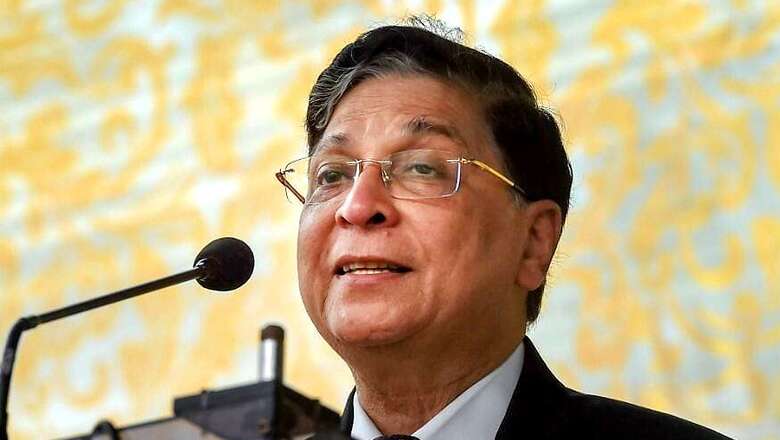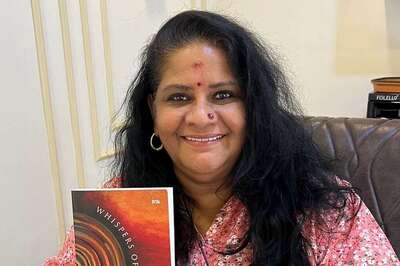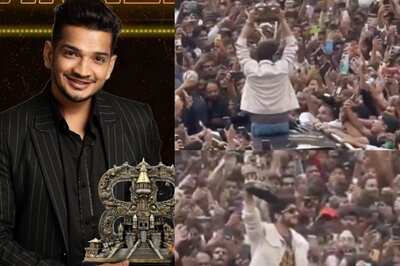
views
New Delhi: When the tenure of the Chief Justice of India ends, ordinarily he is assessed on the quality of his judgments or the appointments made to the Supreme Court. But the tenure of the 45th Chief Justice of India Dipak Misra will be remembered for much more.
CJI Misra will go down in history for living through one of the toughest and volatile phases of the Indian judiciary. From the first ever impeachment motion against a CJI to open rebellion by his own brother judges, Justice Misra lived through it all. The dissent that one witnessed within the judiciary in the last one year was symptomatic of deep structural issues plaguing within.
An opaque collegium system, no transparent mechanism for assignment of cases, the controversial assignment of politically sensitive cases to a ‘preferred bench’. All of this led to a situation that many assessed as ‘unprecedented’.
CJI Dipak Misra assumed the office on August 28, 2017 after Justice Khehar retired. One factor that starkly differentiated CJI Dipak Misra from the past CJIs was the relatively higher concentration of power with Court Number 1. This was further fuelled by a deep sense of distrust with Justice Chelameswar, who was then the second senior most judge of the Supreme Court.
Over hundred matters were listed in a single day at Court No.1, partly heard cases from other benches were brought to Court 1, all public interest litigations were solely listed before Court No.1. More importantly, none of the top four judges were part of any crucial constitution bench.
All of this reached a tipping point in November 2017, when the medical admissions scam case rocked the Supreme Court. Lawyer Prashant Bhushan made a mentioning before Justice Chelameswar, who ordered a constitution bench to look into the matter. The initial investigation in the medical admissions scam case pointed to alleged involvement of SC judges.
Then came 10 November, 2017. It was on this day that CJI Dipak Misra set up a bench to annul the order passed by Justice Chelameswar. In his order, he asserted himself as the ‘master of the roster’ and overturned the order of Justice Chelameswar. Adding insult to the injury was the administrative order which clarified that mentionings will be made only before the CJI.
The long standing tradition was done away with, which was that when CJI court is sitting in a constitution bench, the mentionings are made in Court No.2. Mentionings is a discretion of the court to list a matter urgently or allow filings in a case.
The day was characterised by words being exchanged between Prashant Bhushan and CJI Dipak Misra which was followed by an angry walkout by Bhushan. Random lawyers were allowed to make submissions, Justice Arun Mishra pulled up Prashant Bhushan for maligning CJI office. And eventually an “order passed by the CJI for the CJI”. This day was the most critical turning point which led to the historic press conference of January 12 at the residence of Justice Chelameswar.
CJI’s silence and the historic press conference by SC Judges on January 12
Before the Christmas break, on December 1, the controversial pleas of Prashant Bhushan in the medical admissions scam case were dismissed. Bhushan was also held guilty of contempt of court but the court refrained from taking any action and the NGO was fined Rs 25 lakh. Many thought that the storm has passed but it was a tornado in the making.
It was a regular bustling Friday in Supreme Court on January 12, 2018. The corridors were jam packed and one couldn’t move without pushing the other. This is an ordinary miscellaneous day in Supreme Court.
Suddenly Courts No.2 to Court No.5 rose up and the journalists rushed to the residence of Justice Chelameswar. The Court of the Chief Justice of India was still working and functioning. He was clearly caught off guard as the top four judges held the historic press conference.
When the court resumed after the weekend, CJI Dipak Misra went about his ordinary day. Journalists and observers flocked the court room to see any reaction from the guarded and composed Chief Justice of India. In hindsight, his biggest strength was that he chose not to respond while sitting in the court. The situation aggravated and the times continued to test his grit and composure.
By April, the Congress had requested for an impeachment motion to be moved against the CJI in the Rajya Sabha. The political clamour worsened, the media scrutiny became sharper and the internal crisis of judiciary took clear political overtures. CJI Dipak Misra dealt with it by silence.
The Congress decided to bring the trouble home when it challenged the rejection of impeachment motion by the Vice President before the Supreme Court itself. A precarious situation arrived. Here was a petition filed in the Supreme Court against a sitting CJI. This indeed had never happened in the history.
Towing a cautious line, the matter was listed before Court number 6. CJI couldn’t have heard the matter himself. A defiant Kapil Sibal asked for the administrative order which authorised listing of the matter. The order wasn’t shared by the bench and the plea was withdrawn.
CJI Misra maintained his silence.
Retirement of Justice Chelameswar and pursuit for legacy
The elevation of Justice K M Joseph to the Supreme Court became a sticking point between the CJI and the other four judges with the Centre refusing to clear his name.
Justice KM Joseph as the Chief Justice of Uttarakhand High Court had quashed the President's rule in the state and pulled up the Centre for misusing its powers. When his elevation was stalled, senior judges of the collegium once again openly spoke to the press and criticised the Centre’s move, calling it an assault on the independence of the judiciary.
The collegium after multiple meetings asserted an ‘in principle’ agreement to reiterate the name of Justice KM Joseph but fell short of formally reiterating it. Justice Chelameswar retired on June 23, 2018 and the dynamics of the Collegium witnessed a shift with the entry of Justice AK Sikri. The name of Justice KM Joseph was reasserted along with other names.
While the opposition parties and the comments of his own brother judges scarred the legacy of CJI Misra, he would definitely be remembered for the slew of historic judgments he is set to deliver.
Known to be a strong propagator of women rights, he led the Constitution bench which debated on the menstruation taboos and how the religion treats a menstruating woman. The Supreme Court took a leap and talked about menstruating women and their relationship with religion.
The bench led by Justice Dipak Misra will also deliver judgments on the validity of Aadhaar which will have huge ramifications ahead of the 2019 Lok Sabha Assembly polls, the plea seeking decriminalisation of homosexuality and the petition challenging regressive adultery law, are the other few.
CJI Dipak Misra would also be remembered for making national anthem mandatory in cinema halls and then retracting the direction in a later order. He would be remembered for sending Yakub Memon and the rapists and killers of Nirbhaya to the gallows.
He would indeed be missed in the Supreme Court corridors. Maybe, history will be kinder to him.




















Comments
0 comment